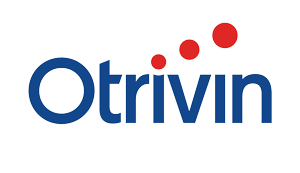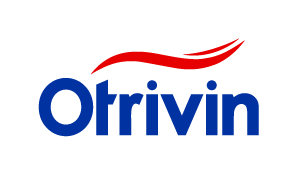
How to ensure proper growth and development in children?
For every parent proper growth and development of their child is of paramount importance, and they try to ensure that it transpires steadily without much hindrance. However, there are some factors that can be modulated, and some can’t, to provide optimal condition suitable to reach the growth milestones.

How can I support my child’s growth and development?
Growth is a complex biological process that results from multiple factors, including:1
- Genetics
- Hormones
- Metabolism
- Nutrition
- Physical activity
- Psychosocial influences
Of course, the first three of these can’t be controlled, since they’re part of a person’s biology. However, the others such as nutrition, physical activity and psychosocial influences can all be attuned to provide proper growth and developmental support to children as they grow.1
The growth process does not happen all at once.1 A child’s growth and development can be divided into four main periods:2
- Infancy
- Preschool years
- Middle childhood years
- Adolescence
However, at all stages, a child’s growth is strongly tied with their level of nutrition.1
How important is nutrition?
Good nutrition in infancy and early childhood is essential for supporting a child’s growth and development. Food preferences and dietary patterns established during early childhood can lay the foundation for healthy eating habits later in life.3 What’s more, emerging evidence also suggests that proper nutrition during early childhood can lead to optimal long-term health and disease prevention.3
On the other hand, poor nutrition can cause problems with a child's intellectual development. A child with a poor diet may often be tired and unable to learn as effectively. Poor nutrition can also make a child more susceptible to illness.2
For older children, breakfast is very important. Children may feel tired and unmotivated if they do not eat a good breakfast. In fact, research has shown that there is a strong relationship between a child eating a healthy, hearty breakfast and improved learning.2
If you have concerns about your child's growth and development, speak to your doctor.
How important is sleep?
A high percentage of infants aged 12 months or younger do not sleep through the night. While there is no clear evidence that this has an impact on a baby’s development, what we do know is that the total amount of sleep a child gets plays a fundamental role in their development.4
Sleeping through the night is widely considered a developmental milestone that should be achieved when a baby is between approximately five months to one year old. However, not all infants conform to this classic developmental timeline.4
Of course, it should also be noted that night-time sleeping doesn’t consider the total amount of time that an infant sleep, since they often sleep in short periods during the day, too.4
How can a blocked nose affect feeding and sleeping?
Did you know that babies cannot breathe through their open mouth, except when they are crying? All newborn babies breathe through their nose, and only develop the complex reflex to open their mouth if their nose is stuffy at around three or four months of age.6
Newborns have such tiny, delicate nasal passages (only about two to three millimetres on each side), that it takes very little change in that small space to cause big symptoms. Newborns with the least bit of nasal stuffiness often make ‘snorting’ noises, during or after eating, when they’re crying, and certainly if they have a cold.6
Infants, children and adults often have difficulty breathing due to an accumulation of mucus, crusts and dryness of the nasal mucosa. An abundant mucus production is particularly frequent in babies and is a symptom of nasal congestion or a runny nose.5
In these situations, a baby – who is not yet able to remove nasal secretions by nose blowing – may have difficulty breathing, feeding and sleeping, and may become irritable and agitated.5
To help your baby from nasal blockage thereby allowing them to feed and sleep well, which we already know is important for their healthy growth and development, you might consider using an Otrivin Baby Saline that is an isotonic saline solution with aloe vera. It helps providing relief from a blocked nose by helping you to easily clear it, and aloe vera provides further moisturisation for baby’s little nose.7
For children over and above 1 years of age, you can also consult your doctor for using a nasal decongestant such as Otrivin Paediatric Nasal Drops and Otrivin Moist P Nasal Drops.8,9
How can I stop a blocked nose affecting feeding and sleeping?
When your baby has a stuffy nose, Otrivin can help.
For Infants, toddlers and children, Otrivin Baby Saline, which contains isotonic saline solution and aloe vera, helps in blocked nose by loosening nasal secretions, making its removal easier. It also gently cleanses and moisturises the nasal cavity. Aloe vera provides further moisturisation, thus giving a soothing effect.7
Otrivin Paediatric nasal drops, with active ingredient xylometazoline, are specially designed for little ones (aged one year and up), to help open up and unblock a baby’s nasal passages by reducing any excessive nasal secretions, returning swollen blood vessels to their normal size.9
Otrivin Paediatric nasal drops can be used when your child complains of a blocked nose due to cold that may be making breathing difficult. It acts in just two minutes and provides long-lasting relief from nasal congestion for up to 12 hours.9
Otrivin Moist P nasal drops helps to provide relief in nasal congestion due to allergic rhinitis, sinusitis, or cold. A nasal decongestant specially designed for kids (and babies above one years of age), it acts in just two minutes and provides long-lasting relief from nasal congestion for up to 12 hours. Otrivin Moist P nasal drops contains xylometazoline in an aqueous solution of sorbitol and hypermellose. Hypermellose has high water retention and thickening properties.10 Sorbitol helps to retain water. Together in aqueous solution they prevent drying and irritation of nasal mucosa and provides further moisturisation.8,10
Find out how to use the Otrivin Paediatric nasal drops to clear your baby’s blocked nose.
References:
- Dumitru M, et al. Factors affecting growth and bone development in minors. Case report. European Journal of Public Health 2015:25(Supplement 3):456–7.
- MedlinePlus. Normal growth and development. Available from: https://medlineplus.gov/ency/article/002456.htm (last accessed April 2020)
- Au LE, et al. Diet Quality of US Infants and Toddlers 7-24 Months Old in the WIC Infant and Toddler Feeding Practices Study-2. J Nutr 2018;148(11):1786–93.
- Pennestri MH, et al. Uninterrupted Infant Sleep, Development, and Maternal Mood. Pediatrics 2018;142(6).
- https://daisylinden.com/how-to-use-a-nasal-aspirator-for-kids-babies/
- Dr Nina Shapiro. Pediatric Otolaryngology. Breathing Issues in your Newborn. Available from: http://drninashapiro.com/safety/breathing-issues-in-your-newborn (last accessed April 2020)
- Otrivin Baby Saline Product Information Leaflet
- Otrivin Moisturising Paediatric Product Information Leaflet
- Otrivin Paediatric Product Information Leaflet
- Otrivin F.5 Formulation, GSK internal document
Show all references
Close references









